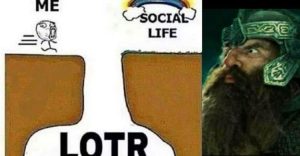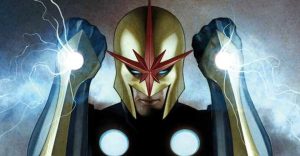Castlevania: 7 Best Character Arcs From The Show

Netflix and Powerhouse Animation have brought to a close one of the best adult animated TV series and arguably the best video game adaptation with Castlevania. The fourth and final season proved a great, satisfying conclusion to the series’ overarching story, as well as the finer details in specific character arcs.
Some characters, however, admittedly may have benefited from a more fleshed-out finale, e.g. Saint Germain–perhaps by having a fifth season be the end to allow for more breathing room. That being said, plenty of key characters got justice done to their plotlines and even mostly ended on surprisingly bright notes, which is refreshing to see. Here are the seven best character arcs across the four seasons.
7 Trevor

Netflix’s debut Belmont thankfully got wonderful, fleshed-out character development. A jaded, excommunicated rogue who gave up on the world due to its seemingly willful path toward self-destruction from those at the top, ultimately growing to rediscover empathy and compassion through a surrogate family. Given Castlevania is a great dark-fantasy show and what the trailer for season four hinted, things could’ve gone either way for Trevor Belmont.
The hero’s sacrifice was certainly possible, but his growth into compassion and selflessness leading into his victory against Death was both emotionally impactful and a visual feast. Trevor rightfully earned his happy ending with those he’s come to love and is a prime example of the excellent writing that made the “happily ever after” feel deserved and not cheap, nor darkness that fizzles out into a poor attempt at a nuanced “bittersweet” ending–i.e. season eight of GoT.
6 Alucard

Alucard was the brooding half of the coin with Trevor on the other. He’s had a turbulent life, particularly over the course of the series, having to be a good bulk of humanity’s hope for survival against his own father. Alucard resolutely took on the share of the burden in killing Dracula for the greater good, but it took time for him to smooth out the rougher edges his character.
He was making clear progress–concurrently with Trevor–but season three presented his most grueling challenge. Alucard deteriorated through his loneliness and craving for human connection, with betrayal pushing him dangerously close to Dracula. Through some tough love, he regained bonding again with Greta and the return of Trevor and Sypha, giving him well-earned peace.
5 Sypha

Rounding out the main trio is Sypha Belnades, the Speaker Magician. She and Trevor get the most character development together, but it’s not a lazily-written, wooden romance. Sypha played an integral role in thwarting vampiric threats, Dracula and beyond, and her and Trevor’s dynamic and growth is genuinely heartwarming, charming and investing.
Each of the three have their own great banter amongst themselves, and she and Trevor weren’t strung along in a cheap will they/won’t they, rather, chipping away at the latter’s bombastic exterior and loneliness and bringing out the best in both of them. After bonding with Alucard and Trevor, she carves a path for herself apart from the Speaker lifestyle, falls in love, and has a child to look forward to raising with Belmont. After all the trio’s been through, they truly, finally won–and Castlevania is all the better for it.
4 Isaac

Venturing outside the main trio, Isaac is arguably the character who got the best and most compelling character arc and outcome since his debut in season two. Isaac grew a deep, cold, callous hatred and resentment for humanity after the viciousness he’s been dealt with since childhood–as a slave, no less. He was certainly among the most intelligent and calculating of Dracula’s Court, and was a force to be reckoned with even against vampires.
Though, his incredible acuity was clouded by his warped view on the world. Isaac then embarks on the most profound soul-searching journey that serves as healing from trauma; learning to live for the future. In a potential would-be, Guts-like fashion from Berserk, Isaac no longer sought to kill Carmilla for revenge, but instead out of necessity for the true greater good and embracing humanity’s positive traits. This was true evolution, and his layered dialogue with the shopkeeper, Captain and his fly-like demon were captivating and vital to it.
3 Carmilla

Of the villains, Carmilla certainly got the most satisfying, thorough, and poetic conclusion to her arc upon the cunning vampire queen of Styria arriving at Dracula’s Court. A villain through and through, she’s written well to still be sympathetic since her origins came at the hands of repeated abuse by cruel, jaded old men. She mirrors prime Game of Thrones and Cersei Lannister in that they’re both vile most of the time and could prove catalysts in the downfall of humanity, but–like what Tyrion told Cersei–has one redeeming quality: determination of security for her sisters-in-arms.
Though GoT botched the endings of most key characters–within the logic of its plot at that point–Carmilla was the echo of how Cersei’s end should’ve come. Her death at the hands of Isaac was poetic in that she became the brand of cruelty she vowed to punish, with Isaac achieving the epiphany that Carmilla couldn’t–sealing her demise, but a thoughtful metaphor for abuse’s effects.
2 Hector

With how Hector was treated in his debut season, the conclusion to his story could’ve easily been mishandled by the end. The other Forgemaster alongside Isaac was perhaps given an even more grueling life and arc than Alucard, though, at least comparable. He’s a gentle soul, but his childlike naivety didn’t help him in a world full of bad-faith agents–as Isaac and Dracula even discuss in season two.
Due to his cruel upbringing and resentment of humanity stunting his emotional growth–different from Isaac’s pure hatred–Carmilla manipulated him to bringing down Dracula for her own reasons and Lenore cruelly deceives him through a sort of pseudo-intimacy akin to Taka and Sumi’s betrayal of Alucard. That’s why it was a relief that Hector was given a mostly victorious finale in finally reclaiming his own agency, with Isaac’s assist.
1 Dracula

Despite his appearances being mostly limited to season one’s introduction and season two (as the main antagonist), Vlad Dracula Ţepeş actually gets a fulfilling arc as well. Starting off as a brilliant, powerful recluse that despises humanity but simply avoids them when possible, he loses what’s left of his sanity once the one human to come into his life to bring love and light to his dark heart finally gets a second lease on life in death.
What’s surprising–but welcome–is that both he and Lisa get that lease in a literal resurrection; all without betraying his own epiphany moment in his death by his son’s hands like Darth Vader’s was in a sense by inexplicably reviving Palpatine at the end of the sequel trilogy. Dracula and Lisa’s cameo in the finale was both beautiful and also earned.
About The Author

















